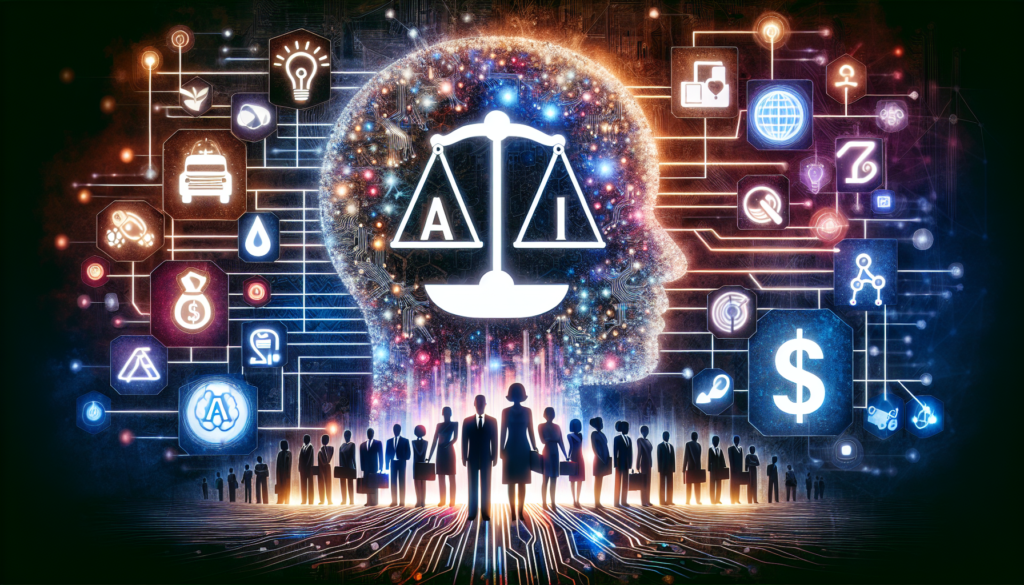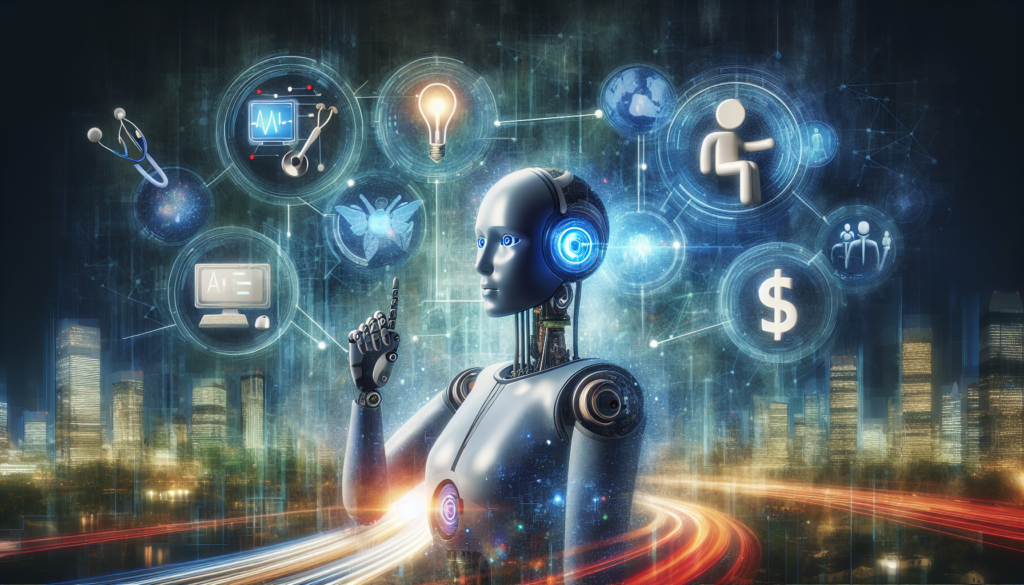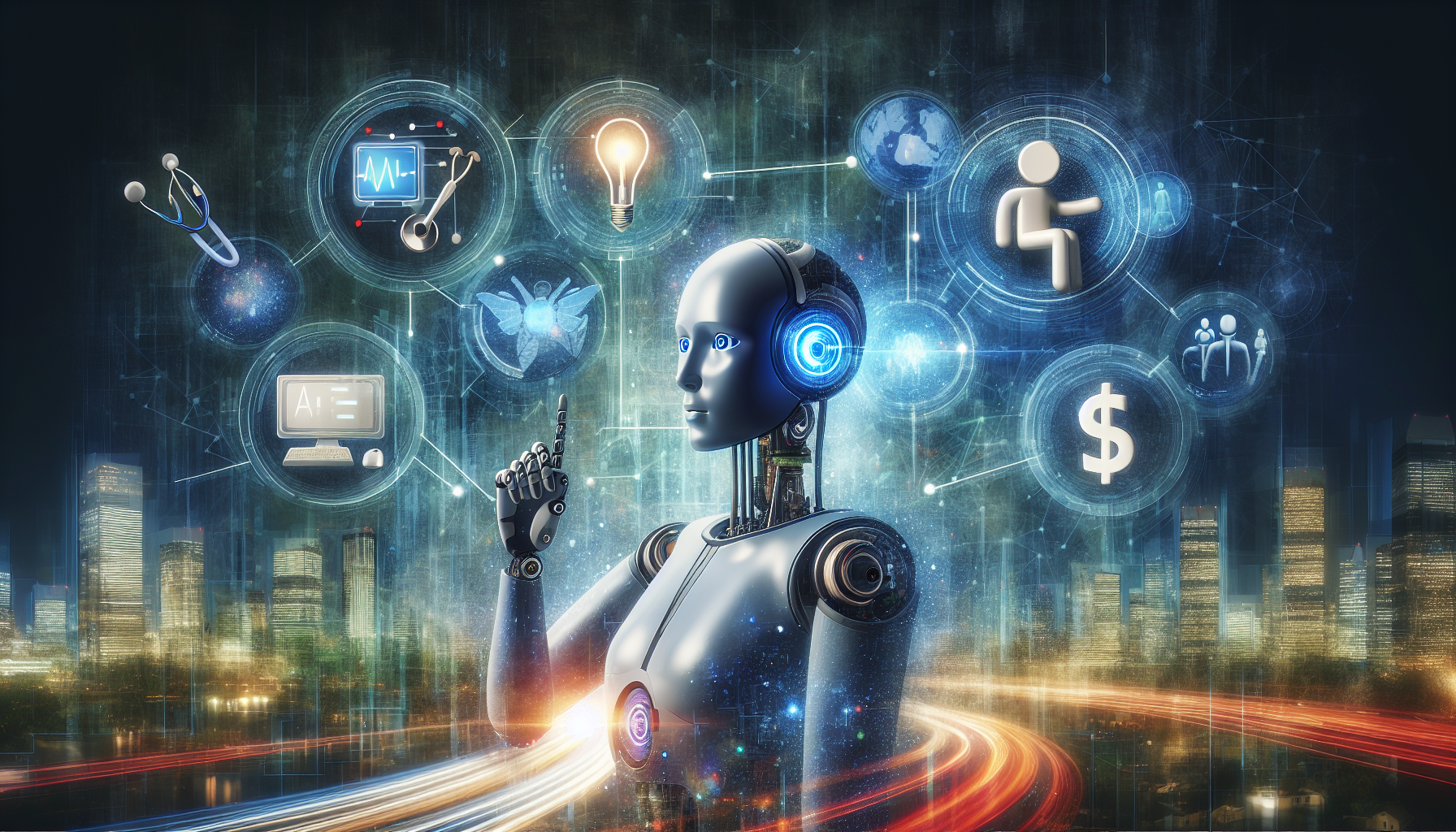Imagine a world where machines possess the ability to think, learn, and adapt, seamlessly mimicking human intelligence. This incredible phenomenon, known as Artificial Intelligence, has revolutionized our lives in ways we couldn’t even fathom. From voice assistants that manage our daily tasks to predictive algorithms that revolutionize entire industries, AI has become an unstoppable force. But amidst the vast realm of AI, which stands as the most powerful? Join us as we embark on a journey into the realm of Artificial Intelligence to uncover the true extent of its abilities and discover the most dominant form of AI in existence.
The Power of Artificial Intelligence
Artificial intelligence (AI) is revolutionizing various industries and transforming the way we live, work, and interact. With its ability to analyze vast amounts of data, learn from patterns, and make intelligent decisions, AI has become an indispensable tool in today’s world. In this article, we will explore the concept of artificial intelligence, its evolution, applications, and the extraordinary impact it has on our lives. Let’s dive in and discover the power of artificial intelligence.

Understanding Artificial Intelligence
Artificial intelligence refers to the development of computer systems that can perform tasks that typically require human intelligence. This includes activities such as understanding natural language, recognizing objects in images and videos, making predictions, and even problem-solving. AI can be classified into two main types: narrow or weak AI, which is designed to perform specific tasks, and artificial general intelligence (AGI), which possesses the ability to understand, learn, and apply knowledge across various domains.
What is Artificial Intelligence?
Artificial intelligence encompasses a wide range of technologies and techniques designed to imitate human intelligence in machines. These can include machine learning, natural language processing, computer vision, robotics, and more. AI systems are taught to observe patterns in data, learn from them, and adjust their behavior accordingly. By using algorithms and models, AI systems can perform complex tasks, recognize patterns, and make predictions with remarkable accuracy.
The Evolution of Artificial Intelligence
Artificial intelligence has come a long way since its inception. Although the concept of AI has been around for decades, recent advancements in technology and computing power have accelerated its growth. From early rule-based systems to modern machine learning algorithms, AI has continuously evolved, enabling new breakthroughs in various fields. Every advancement in AI has brought us closer to creating machines that can truly think and reason like humans.
The Power of Artificial General Intelligence
Artificial General Intelligence (AGI) is often regarded as the most powerful form of AI. Unlike narrow AI systems that are designed to excel at specific tasks, AGI possesses the ability to understand and learn from any domain of knowledge, just like a human does. AGI systems can recognize patterns, solve complex problems, and even exhibit creativity. The development of AGI has the potential to revolutionize multiple industries and unlock new frontiers of knowledge and innovation.
The Applications of Artificial Intelligence
Artificial intelligence has found applications in various industries, impacting almost every aspect of our lives. Let’s explore some key sectors where AI is making significant advancements.
1. Healthcare
AI has the potential to revolutionize healthcare by augmenting medical professionals’ abilities and improving patient care. Machine learning algorithms can analyze vast amounts of medical data, detect patterns, and identify potential diseases at an early stage. AI-powered systems can also assist in diagnosing illnesses, designing personalized treatment plans, and even performing complex surgeries with precision and accuracy.
2. Transportation
Artificial intelligence is reshaping the transportation industry with advancements in autonomous vehicles and traffic management systems. Self-driving cars and trucks powered by AI have the potential to reduce accidents, optimize fuel consumption, and improve overall traffic flow. AI-based algorithms can also enhance route planning, predict maintenance needs, and improve logistics management, leading to more efficient and sustainable transportation systems.
3. Finance
In the financial sector, AI is transforming how we manage our money, detect fraud, and make investment decisions. AI-powered chatbots and virtual assistants enable faster customer service and personalized financial advice. Machine learning algorithms can analyze vast amounts of financial data in real-time, identify patterns, and make accurate predictions. These insights help financial institutions manage risks, detect anomalies, and make informed decisions for their clients and the market.
4. Education
Artificial intelligence has the potential to reshape education by offering personalized learning experiences and improving educational outcomes. AI-powered tutoring systems can adapt to individual students’ needs, provide tailored feedback, and track progress. Virtual reality and augmented reality technologies integrated with AI can create immersive educational experiences, making learning more engaging and interactive. AI can also assist teachers in curriculum design, content creation, and administrative tasks, allowing them to focus more on personalized instruction.
5. Manufacturing
AI is revolutionizing manufacturing by optimizing production processes, enhancing quality control, and enabling predictive maintenance. Smart robots and AI-powered systems can automate repetitive tasks, improving efficiency and reducing human error. Machine learning algorithms can analyze sensor data from manufacturing equipment, predicting potential failures and reducing downtime. AI-powered systems can also optimize supply chain management, enhancing inventory control, and streamlining logistics.

The Impact of Artificial Intelligence
The rise of artificial intelligence has had a profound impact on society and businesses alike. Let’s explore some key areas where AI is making a significant difference.
1. Advancements in Automation
With the power of AI, automation has reached new heights. AI-powered robots and systems can perform tasks that previously required human intervention, leading to increased productivity and cost savings. From automated customer service chatbots to autonomous manufacturing processes, AI-driven automation has transformed industries across the globe.
2. Enhanced Efficiency and Productivity
Artificial intelligence has significantly improved efficiency and productivity in various sectors. AI algorithms can analyze vast amounts of data in real-time, allowing businesses to make better-informed decisions quickly. By automating repetitive and mundane tasks, AI frees up human resources, enabling them to focus on more strategic and creative endeavors.
3. Improved Decision-Making
AI’s ability to analyze and interpret complex data sets has revolutionized decision-making processes. AI-powered systems can identify patterns and trends that humans may miss, enabling businesses to make data-driven decisions with greater accuracy and speed. Whether it’s optimizing supply chains or predicting market trends, AI provides valuable insights that improve decision-making across industries.
4. Personalized User Experiences
Artificial intelligence has made personalized user experiences a reality. AI algorithms can learn from user behavior, preferences, and historical data to deliver tailor-made recommendations and services. From personalized product recommendations on e-commerce platforms to personalized news and entertainment content, AI enhances user satisfaction by providing a more personalized and engaging experience.
5. Addressing Global Challenges
Artificial intelligence has the potential to address some of the world’s most pressing challenges. From climate change to healthcare, AI-powered solutions can help us tackle complex problems more effectively. For example, AI can analyze climate data to predict and mitigate the impact of natural disasters. In healthcare, AI can assist in diagnosing diseases and developing personalized treatments, leading to improved patient outcomes.
The Future of Artificial Intelligence
As we look ahead, it is important to consider the future of artificial intelligence and the impact it will have on society.
1. Ethical Considerations
With the increasing capabilities of AI comes the need for ethical considerations. As AI systems become more autonomous, questions arise regarding privacy, accountability, and bias. It is crucial to ensure that AI is developed and deployed in an ethical and responsible manner, addressing concerns such as data privacy, algorithmic transparency, and fairness.
2. Socioeconomic Impact
The widespread adoption of AI will have a significant socioeconomic impact, affecting the job market and the nature of work. While AI-powered automation may eliminate certain jobs, it also creates opportunities for new roles and industries. Preparing the workforce for an AI-driven future and ensuring equitable access to AI technologies will be critical for a smooth transition.
3. Continued Innovation and Development
The development of artificial intelligence is a continuous process, and the future holds endless possibilities. Researchers and innovators are constantly pushing the boundaries of AI, striving to create even more advanced systems. Advancements in areas such as neural networks, quantum computing, and explainable AI will shape the future of AI, enabling us to leverage its power for the benefit of humanity.
Conclusion
Artificial intelligence has become an undeniable force that is transforming countless aspects of our lives. From healthcare to transportation, finance to education, AI has the power to revolutionize industries and address global challenges. The impact of AI can be seen in advancements in automation, enhanced efficiency, improved decision-making, personalized user experiences, and the potential to address complex issues. As we navigate the future, it is important to consider ethical considerations, socioeconomic impact, and the continued innovation and development of AI. By harnessing the power of artificial intelligence responsibly, we can unlock its full potential and create a brighter future for all.
